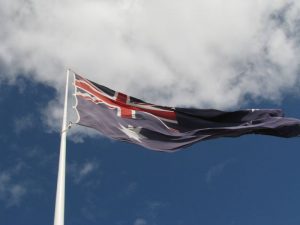The recent announcement by Chinese officials of a tariff increase of up to 210 percent on Australian wines was brutal but effective in penalizing Australia for its very public and strong stance on China. Yet despite the increasing alarm expressed by businesspeople and academics alike, Prime Minister Scott Morrison has continued to resist calls to adopt a more nuanced and moderate approach, reminding Australians there is no other option in order to protect our regional interests, national sovereignty, and democratic system. But is this strategy Australia’s only option? And has the approach been not only economically severe, but oversimplistic?
If we look around our region, Australia is not alone in being posed with a number of challenges by an increasingly wealthy and powerful China as it seeks to expand its influence throughout the Indo-Pacific. In recent years China has been in dispute with numerous nations in its neighborhood, including Japan, Vietnam, the Philippines and, closer to home, Indonesia.
Politically, both Indonesia and Australia share the same challenge of how best to handle the relationship with China, given both nations’ heavy economic dependence on Chinese trade and investment. Late last month, Indonesia signed a $1.5 billion deal to supply China with coal, taking annual export earnings to China to almost $50 billion.
Both Indonesia’s President Joko “Jokowi” Widodo and Australian Prime Minister Scott Morrison share deep concerns about China’s political and expansionary ambitions in our region. Indonesia has confronted China on a range of issues, including the sovereignty of the Natuna Islands in the South China Sea, and the poaching of marine stock by hundreds of Chinese fishing boats operating illegally in Indonesian waters. Then there is the ever-present anti-ethnic Chinese sentiment within Indonesia, a combustive issue Jokowi has been careful not to inflame.
Unlike Australia, Indonesia’s defense minister, former military strongman Prabowo Subianto, has made numerous visits to China in the past 12 months, and despite these ongoing disputes and disagreements, his country maintains strong investment, trade, and business relations with Beijing. The same is true of Japan, which who has also managed its relationship with China carefully, quarantining areas of disagreement from its cordial business relationships and trade links.
In recent months Prabowo has also visited the United States, a visit that was reciprocated by U.S. Secretary of State Mike Pompeo last month. Indonesia shares Australia’s desire for the U.S. to remain a powerful and active presence in the Indo-Pacific, to counter-balance China’s increasing power. However Jokowi has been happy to let Morrison unwittingly continue promoting himself as President Donald Trump’s “deputy sheriff” in the region.
Over the past 12 months, Indonesia’s Foreign Minister Retno Marsudi has also visited Beijing, followed by Jokowi’s most senior minister Luhut Pandjaitan who, when asked recently about the challenging relationship with China replied, “like it or not, happy or not happy, China is now a world power that cannot be ignored.” Pragmatism prevails in Jakarta.
So why can nations such as Japan and Indonesia “walk and chew gum” at the same time by maintaining cordial relations with China whilst confronting Beijing on issues important to their respective governments? The main difference appears to have been not so much the right to take a strong stance on China, but rather how these differences need to been handled and articulated, with Morrison and his ministers preferring a very public approach.
This was apparent when Australian Foreign Minister Marise Payne used the media to call for an inquiry into the origins of COVID-19, including China’s early handling of the pandemic. This was a position shared by countries such as Indonesia, but again regional leaders were happy to let Australia take the initiative in making the call publicly. It is questionable whether this should have been the role of a middle power like Australia, where usually our effectiveness is in working quietly with partners to bring about change on the issues that really matter to us and the region.
As Professor Hugh White of the Australia National University put it recently about the current trade conflict with China, “it is bad politics, as well as bad government, to trash this most important relationship for short-term applause.”
China’s behavior, particularly last week, has been ham-fisted and crass, but Australia’s handling of this very complex issue has been clumsy and strategically inept. It has also allowed China to be “deeply offended” by our very public comments, and provided Beijing with a self-serving opportunity to remind other nations in our region of the old Chinese idiom that, “Sometimes you must kill the chicken to scare the monkeys.”
The problem for Australia is that, in the terms of this idiom, it is the chicken that always ends up in a very bad place.
Ross B. Taylor AM is the president of the Perth-based Indonesia Institute Inc., & former national vice president, Australia-Indonesia Business Council

































